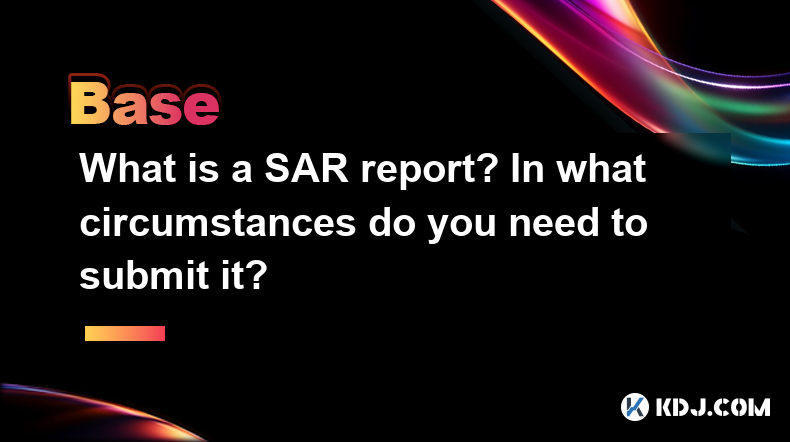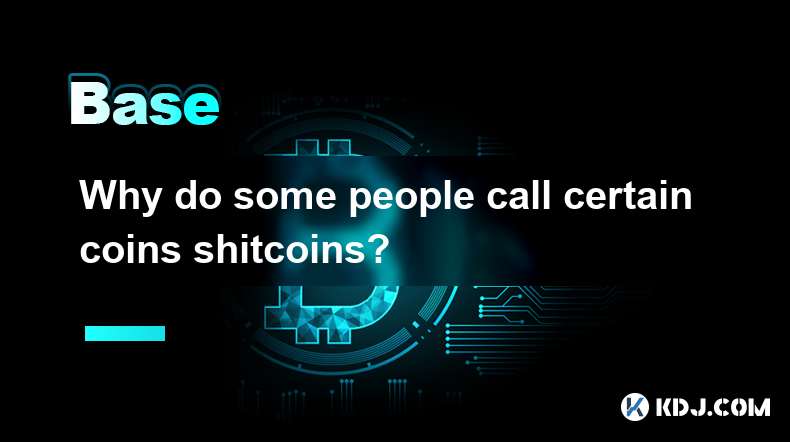-
 Bitcoin
Bitcoin $84,367.7234
1.25% -
 Ethereum
Ethereum $1,600.1723
1.83% -
 Tether USDt
Tether USDt $0.9998
0.00% -
 XRP
XRP $2.0964
1.79% -
 BNB
BNB $582.2457
0.34% -
 Solana
Solana $133.1948
6.30% -
 USDC
USDC $1.0000
0.00% -
 Dogecoin
Dogecoin $0.1569
2.16% -
 TRON
TRON $0.2449
-2.83% -
 Cardano
Cardano $0.6186
2.17% -
 UNUS SED LEO
UNUS SED LEO $9.4458
0.78% -
 Chainlink
Chainlink $12.5745
2.94% -
 Avalanche
Avalanche $19.2746
2.70% -
 Toncoin
Toncoin $2.9610
3.97% -
 Stellar
Stellar $0.2387
2.17% -
 Shiba Inu
Shiba Inu $0.0...01198
3.08% -
 Sui
Sui $2.0974
0.75% -
 Hedera
Hedera $0.1592
1.60% -
 Bitcoin Cash
Bitcoin Cash $335.3208
4.54% -
 Litecoin
Litecoin $75.1855
-0.65% -
 Polkadot
Polkadot $3.6127
2.24% -
 Hyperliquid
Hyperliquid $16.1266
8.37% -
 Dai
Dai $1.0001
0.02% -
 Bitget Token
Bitget Token $4.3594
4.35% -
 Ethena USDe
Ethena USDe $0.9992
0.01% -
 Pi
Pi $0.6125
0.37% -
 Monero
Monero $219.0095
-0.11% -
 Uniswap
Uniswap $5.2454
1.81% -
 OKB
OKB $51.1779
-2.16% -
 Pepe
Pepe $0.0...07259
3.16%
What is a SAR report? In what circumstances do you need to submit it?
SAR reports are crucial in the crypto sector to flag suspicious activities like money laundering, ensuring compliance and aiding in criminal investigations.
Apr 11, 2025 at 11:28 pm

What is a SAR Report?
A SAR report, or Suspicious Activity Report, is a document that financial institutions, including those in the cryptocurrency sector, are required to file with the relevant authorities when they detect certain types of suspicious activities. In the context of cryptocurrencies, a SAR report is crucial for identifying potential money laundering, fraud, or other illegal activities. The primary purpose of a SAR report is to alert regulatory bodies to activities that may warrant further investigation.
Why Are SAR Reports Important in the Cryptocurrency Sector?
The cryptocurrency sector is particularly susceptible to illicit activities due to the pseudo-anonymous nature of transactions. SAR reports play a critical role in maintaining the integrity of the financial system by ensuring that any suspicious transactions are flagged and reported. This helps in the prevention and detection of criminal activities, thereby safeguarding the ecosystem from being exploited for illegal purposes.
Circumstances Requiring a SAR Report Submission
There are several specific circumstances under which a SAR report must be submitted in the cryptocurrency sector. These include:
- Large Transactions: Transactions exceeding a certain threshold, which can vary by jurisdiction, must be reported. For example, in the United States, transactions over $10,000 may trigger a SAR filing.
- Unusual Patterns: Any transaction or series of transactions that do not align with a customer's known financial profile or business activities should be reported.
- Suspected Criminal Activity: If there is a reasonable suspicion that a transaction is linked to criminal activities such as money laundering, fraud, or terrorist financing, a SAR report must be filed.
- Structuring: If a customer appears to be structuring transactions to avoid reporting thresholds, this must be reported.
How to File a SAR Report
Filing a SAR report involves several detailed steps, which are crucial for ensuring compliance with regulatory requirements. Here's a step-by-step guide on how to file a SAR report in the cryptocurrency sector:
- Identify the Suspicious Activity: The first step is to identify the transaction or activity that appears suspicious. This could be based on transaction size, frequency, or other indicators.
- Gather Information: Collect all relevant information about the transaction, including the parties involved, the amount, and any other pertinent details.
- Complete the SAR Form: Fill out the SAR form provided by the relevant regulatory authority. This form will require detailed information about the suspicious activity and the parties involved.
- Submit the Report: Submit the completed SAR form to the appropriate regulatory body within the required timeframe. In the United States, for example, SARs must be filed within 30 days of detecting the suspicious activity.
- Maintain Records: Keep a record of the SAR filing, including the date of submission and any follow-up actions taken.
Common Mistakes to Avoid When Filing a SAR Report
When filing a SAR report, it's important to avoid common pitfalls that could lead to non-compliance or delays in the reporting process. Some of these mistakes include:
- Incomplete Information: Failing to provide all required information can result in the report being rejected or delayed.
- Late Filing: Missing the deadline for filing a SAR report can result in penalties and fines.
- Failure to Follow Up: Not following up on a SAR filing to provide additional information or updates can hinder the investigation process.
- Lack of Documentation: Not maintaining proper records of SAR filings can lead to compliance issues during audits.
Regulatory Bodies and SAR Reports
Different countries have different regulatory bodies responsible for receiving and processing SAR reports. In the United States, the Financial Crimes Enforcement Network (FinCEN) is the primary agency responsible for handling SARs. In the European Union, the European Banking Authority (EBA) and national financial intelligence units play a similar role. Understanding the specific requirements and processes of the relevant regulatory body is essential for effective SAR reporting.
The Role of Compliance Officers in SAR Reporting
Compliance officers play a pivotal role in the SAR reporting process within cryptocurrency firms. They are responsible for:
- Monitoring Transactions: Regularly monitoring transactions to identify any suspicious activities.
- Training Staff: Ensuring that all staff members are trained on how to identify and report suspicious activities.
- Filing Reports: Overseeing the filing of SAR reports and ensuring that they are submitted accurately and on time.
- Maintaining Compliance: Keeping up to date with regulatory changes and ensuring that the firm remains compliant with all SAR reporting requirements.
Frequently Asked Questions
Q: Can a SAR report be filed anonymously?
A: No, SAR reports cannot be filed anonymously. The filing institution must provide its identifying information as part of the report. However, the identity of the individual who files the report within the institution can be kept confidential.
Q: What happens after a SAR report is filed?
A: After a SAR report is filed, it is reviewed by the relevant regulatory body. If further investigation is deemed necessary, the case may be referred to law enforcement agencies. The filing institution may be required to provide additional information or cooperate with the investigation.
Q: Are there any penalties for failing to file a SAR report?
A: Yes, failing to file a SAR report when required can result in significant penalties, including fines and potential criminal charges. The exact penalties can vary by jurisdiction, but they are designed to ensure compliance with anti-money laundering and counter-terrorism financing regulations.
Q: How long should records of SAR filings be kept?
A: Records of SAR filings should be kept for a minimum of five years, although some jurisdictions may require longer retention periods. It's important to check the specific requirements of the relevant regulatory body.
Disclaimer:info@kdj.com
The information provided is not trading advice. kdj.com does not assume any responsibility for any investments made based on the information provided in this article. Cryptocurrencies are highly volatile and it is highly recommended that you invest with caution after thorough research!
If you believe that the content used on this website infringes your copyright, please contact us immediately (info@kdj.com) and we will delete it promptly.
- Solana (SOL) Just Scored a Major Win in Canada, Opening the Doors to Institutional Adoption
- 2025-04-17 14:15:14
- 3 Crypto Projects Poised to Explode in 2025
- 2025-04-17 14:15:14
- The net issue for new housing loans continues to grow in the euro zone
- 2025-04-17 14:10:13
- Footprint Analytics Partners with AI Flow to Revolutionize Web3 Data Analytics
- 2025-04-17 14:10:13
- The anticipated price highlight of Solana blockchain reaching $400 by 2025 increases market talk
- 2025-04-17 14:05:13
- Introducing LaunchLab, Raydium's all-in-one token launchpad.
- 2025-04-17 14:05:13
Related knowledge

What does Floor Price mean in the NFT market
Apr 17,2025 at 12:42am
The term Floor Price is a critical concept within the NFT (Non-Fungible Token) market, serving as a key indicator for both buyers and sellers. In essence, the floor price represents the lowest price at which an NFT from a particular collection is currently listed for sale on a marketplace. This price point is crucial for understanding the perceived valu...

What is Alpha? How to find Alpha opportunities?
Apr 16,2025 at 12:42pm
What is Alpha?Alpha is a term widely used in the financial world, including the cryptocurrency market, to describe the ability of an investment to outperform a benchmark. In the context of cryptocurrencies, alpha refers to the excess return an investor achieves over the market's average return. For example, if the overall crypto market grows by 10% in a...

Why do cryptocurrency enthusiasts like to say GM?
Apr 16,2025 at 06:21am
In the world of cryptocurrency, the term 'GM' has become a popular greeting among enthusiasts. GM stands for 'Good Morning,' and its widespread use within the crypto community has a deeper significance than just a simple greeting. This article delves into the reasons why cryptocurrency enthusiasts like to say GM, exploring its origins, cultural signific...

What do WAGMI and NGMI mean?
Apr 16,2025 at 08:08pm
In the world of cryptocurrency, you might often come across the acronyms WAGMI and NGMI. These terms have become part of the crypto slang and are frequently used in discussions, tweets, and forums related to digital currencies. Let's delve into what these terms mean, their origins, and how they are used within the crypto community. Understanding WAGMIWA...

What are Diamond Hands and Paper Hands?
Apr 16,2025 at 10:42am
In the world of cryptocurrencies, the terms Diamond Hands and Paper Hands are frequently used to describe the behavior and mindset of investors, particularly in volatile markets. These terms originated from online communities and have become a significant part of the crypto lexicon, often used to describe the level of resilience and commitment an invest...

Why do some people call certain coins shitcoins?
Apr 17,2025 at 03:21am
Understanding the Term 'Shitcoin'The term 'shitcoin' is a colloquialism within the cryptocurrency community that is used to describe cryptocurrencies that are perceived as having little to no value or potential. It is a derogatory term, often used to express disdain or skepticism about the viability of certain digital assets. The use of 'shitcoin' is su...

What does Floor Price mean in the NFT market
Apr 17,2025 at 12:42am
The term Floor Price is a critical concept within the NFT (Non-Fungible Token) market, serving as a key indicator for both buyers and sellers. In essence, the floor price represents the lowest price at which an NFT from a particular collection is currently listed for sale on a marketplace. This price point is crucial for understanding the perceived valu...

What is Alpha? How to find Alpha opportunities?
Apr 16,2025 at 12:42pm
What is Alpha?Alpha is a term widely used in the financial world, including the cryptocurrency market, to describe the ability of an investment to outperform a benchmark. In the context of cryptocurrencies, alpha refers to the excess return an investor achieves over the market's average return. For example, if the overall crypto market grows by 10% in a...

Why do cryptocurrency enthusiasts like to say GM?
Apr 16,2025 at 06:21am
In the world of cryptocurrency, the term 'GM' has become a popular greeting among enthusiasts. GM stands for 'Good Morning,' and its widespread use within the crypto community has a deeper significance than just a simple greeting. This article delves into the reasons why cryptocurrency enthusiasts like to say GM, exploring its origins, cultural signific...

What do WAGMI and NGMI mean?
Apr 16,2025 at 08:08pm
In the world of cryptocurrency, you might often come across the acronyms WAGMI and NGMI. These terms have become part of the crypto slang and are frequently used in discussions, tweets, and forums related to digital currencies. Let's delve into what these terms mean, their origins, and how they are used within the crypto community. Understanding WAGMIWA...

What are Diamond Hands and Paper Hands?
Apr 16,2025 at 10:42am
In the world of cryptocurrencies, the terms Diamond Hands and Paper Hands are frequently used to describe the behavior and mindset of investors, particularly in volatile markets. These terms originated from online communities and have become a significant part of the crypto lexicon, often used to describe the level of resilience and commitment an invest...

Why do some people call certain coins shitcoins?
Apr 17,2025 at 03:21am
Understanding the Term 'Shitcoin'The term 'shitcoin' is a colloquialism within the cryptocurrency community that is used to describe cryptocurrencies that are perceived as having little to no value or potential. It is a derogatory term, often used to express disdain or skepticism about the viability of certain digital assets. The use of 'shitcoin' is su...
See all articles























































































